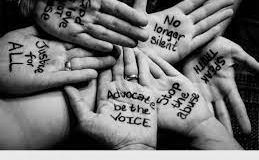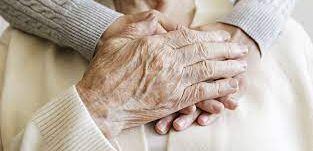You may call the Woman Haven Hotline at 1-760-353-8530. The hotline is answered by trained counselors 24 hours a day, 7 days a week. It is bilingual, confidential and referrals may be provided for services in every region of the County. It offers information such as DV shelter bed availability, counseling referrals, batterer's treatment information, and assistance with safety planning. For more information, you can also download a copy of the District Attorney's brochure on Domestic Violence.
You may also contact the Imperial County Family Justice Center located at the Center For Family Solutions, 727 West Main Street, El Centro, CA 92243, (760) 353-6922. The Family Justice Center is open Monday and Tuesday from 9:00 am to 1:00 am.
Domestic violence, also known as intimate partner violence (IPV), includes a pattern of abusive behaviors that is used to gain or maintain power and control over an intimate partner.
California law refers to domestic violence as abuse committed against an adult or minor who is a spouse, former spouse, cohabitant, former cohabitant, or person with whom the suspect has had a child or is having or has had a dating or engagement relationship (PC 13700 (b)). "Abuse" means intentionally or recklessly causing or attempting to cause bodily injury, or placing another person in reasonable apprehension of imminent serious bodily injury to himself or herself, or another.
Victims of domestic violence can include women and men of any age, race, religion, social or economic status, education, or sexual orientation.
Domestic violence has many forms including physical aggression, sexual abuse, emotional or psychological abuse, stalking, or financial abuse. This includes any behaviors that intimidate, manipulate, hurt, humiliate, blame, frighten, terrorize, injure or wound someone. It can happen to couples who are or were married, living together or who are dating, or who have ended relationships.
Physical abuse includes physical contact that results in injury. For example: Hitting, punching, choking (strangulation), pushing, slapping, denial of needed medical care or other basic needs (food, housing, water, sleep). This may be by use of hand(s) or other weapons such as a firearm, knife, object (bat, book, lamp, shoe, plate, etc).
Behavior that threatens, intimidates, undermines the victim’s self-worth or self-esteem, or controls the victim’s freedom. For example: Humiliation, controlling what you can or cannot do, deliberating making you feel diminished, isolating you from friends or family, denying you access to money or other basic resources, undermining yourself worth, threatens to harm or kill you, threatens or actual harms your children, pets or other family members, constant criticism, use of the children against you.
Economic abuse may be taking place if your partner controls your money and other economic resources. For example: Withholding money at will and forcing you to beg for the money, putting you on an "allowance," preventing you from finishing your education or from gaining employment, intentionally misusing family resources.
Sexual abuse involves any situation in which force is used to compel you to engage in unwanted, unsafe, or degrading sexual activity against your will, whether or not the act is completed. For example: Non-consensual forced physical contact, unwanted touching, sexual kissing, wanting you to dress in a sexual way with which you are not comfortable, insulting you in sexual ways, calling you sexual names, forcing or manipulating you into to having sex or performing sexual acts, demanding sex when you are sick, tired or after beating you, ignoring your feelings about sex, hurting you with weapons or objects during sex.





